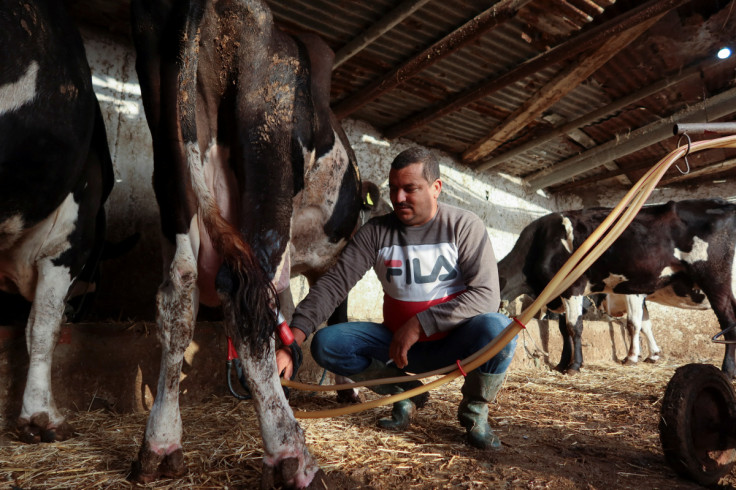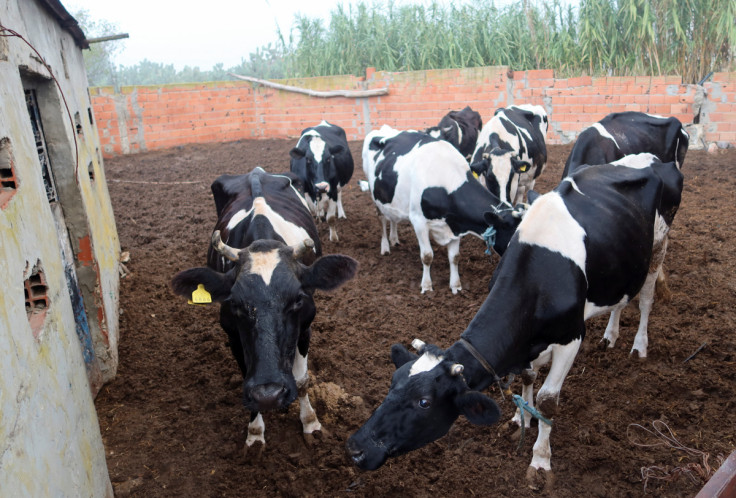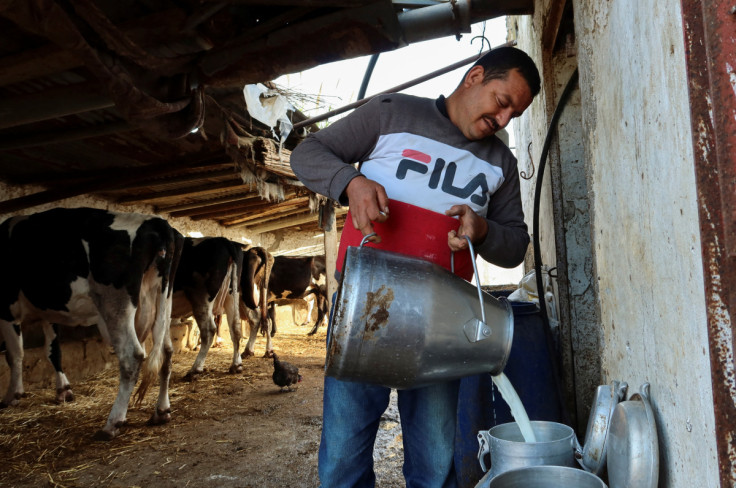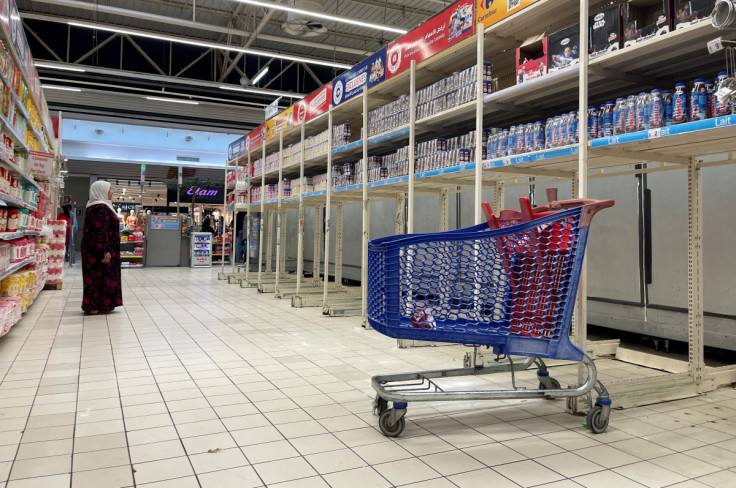Tunisia's Milk Shortage Leaves Farmers Poor And The Public Angry

Tunisian dairy farmer Maher Gizmir has sold nearly half his cows this year and reduced his daily output by 85%, adding to a shortage of milk around the country as a cash-strapped government wrestles with inflation.
Like many other dairy farmers, Gizmir says he can no longer afford to produce milk at the state-mandated purchase price given his rising outlay on fodder and other goods and services.
Tunisia, eager to keep prices down for ordinary citizens but also bound by promises to reduce subsidies as it seeks a bailout from the International Monetary Fund, has few options.
Its inability to resolve the problem has left farmers poorer and consumers fuming, adding to a sense of economic breakdown and government mismanagement in a country where frustration over politics is already simmering.
"We want water and fodder at low prices and we want the government to raise the price of milk to cover costs. Otherwise I'll leave this profession and sell my cows," said Gizmir, 40, who inherited his farm northwest of Tunis from his father.
Economic frustrations in Tunisia played into the 2011 revolution that brought democracy - and into apparent support for President Kais Saied last year when he shut down parliament and adopted broad powers in moves his foes called a coup.
This year other major goods have also periodically disappeared or been rationed in shops, including bread, cooking oil, bottled water, petrol and some medicines.
"I've been looking for milk for my child for three days and found none. It's unbearable," said Arij, a woman shopping in the Omran district of Tunis who asked not to be named because she was criticising the president.
"Saied and his government have neglected the people and left us to face our fate," she added.
Farmers sell their milk to wholesalers at a state-set price of 1.1 dinars ($0.35) per litre. The retail price for consumers is capped at 1.35 dinars a litre.
At Gizmir's farm, black and white cows shelter under a wooden roof in a concrete shed.
"A year ago I had 22 cows. Now I only have 12. I sold 10 because I could not cover my costs. I struggle every day and my debts are up to 15,000 dinars," said Gizmir, the farmer, adding he spends 100 dinars a day on fodder to produce 50 litres of milk that he sells for 55 dinars.
His output has dropped in two years from 700 litres a day to 100 litres a day, he said, and he believes the cows he sold were smuggled by their buyer into neighbouring, oil-rich Algeria.
Milk wholesaler Mabrouk Lakhal in the town of Kalaat Al Andalous near Gizmir's farm said he heard every day from farmers selling their herds. "We used to collect 40,000 litres a day and now we collect only 12,000 litres a day," he said.
'SOCIAL EXPLOSION'
Since seizing most powers last year, President Saied has mostly avoided discussing economics, leaving the details of Tunisia's talks with the IMF to a government he has appointed and publicly blaming hoarders and speculators for shortages.
However, opposition parties and Tunisia's powerful labour union have warned of a "social explosion" if the government makes further cuts to public spending amid a cost of living crisis that has followed years of economic problems.
Fodder prices rose globally after Russia's invasion of Ukraine, a major agricultural producer, as did energy and water costs after Tunisia reduced subsidies for both since last year to ease a crisis in public finances and assuage foreign lenders.
A drought has also reduced water supply, adding to farmers' problems.
The prime minister's office and agriculture ministry declined to comment. Last week Agriculture Minister Mahmoud Hamza said the problem of milk shortages would soon be resolved, without giving details.
FURIOUS PUBLIC
This month Tunisia signed a staff-level agreement with the IMF for a $1.9 billion bailout in return for promised spending cuts including on subsidies and the government may need to enact further energy price rises to finalise the deal.
In desperate need of budget support to avoid a debt default that ratings agencies have said may happen next year, the government may struggle to subsidise dairy producers as many of them now demand.
Also facing a furious public, with rapidly growing numbers quitting Tunisia entirely by emigrating illegally to Italy, it is loathe to help farmers by raising prices for consumers and adding to an inflation rate that was 9.2% in October.
"The state seeks to avoid a deeper social crisis and avoid any concerns by increasing the price of milk. But it risks a collapse in the dairy system that contributes to food security and provides thousands of jobs," said Anis Kharbach, deputy head of the Agriculture Union.
($1 = 3.1412 Tunisian dinars)



© Copyright Thomson Reuters 2025. All rights reserved.





















